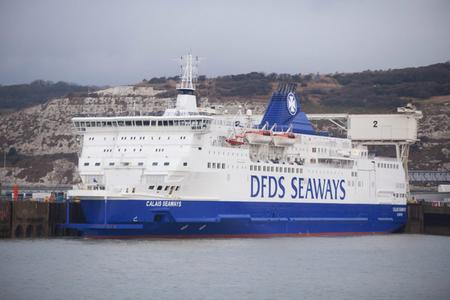The battle to operate ferry services between Dover and Calais on the English Channel continues.
Even though the UK authorities said in January that DFDS had won the route – which at 33.1 km is the shortest between France and Britain – a new decision will allow DFDS competitor Eurotunnel to continue to operate the route via its ferry operator MyFerry Link.
British courts had ruled twice that Eurotunnel could not operate the route because it already had 50 percent of the English Channel market tied up.
Eurotunnel had originally been given until July 9 this year to stop services between Dover and Calais, but a civil court has now given Eurotunnel permission to continue.
“We are surprised by this order, but it is not a disaster for us,” Niels Smedegaard, the managing director of DFDS, told Jyllands-Posten. “Last year we significantly reduced our losses on the route.”
READ MORE: DFDS jubilant over Eurotunnel case ruling
Smedegaard said that after the January decision, he had expected DFDS to be in the black on the route by 2015.
He declined to comment whether that prediction would hold after this week’s decision. He has previously been quoted as saying it would cost DFDS 10 million kroner a month if MyFerry Link continued to operate three ferries on the route.
DFDS may sue
UK competition authorities now have four weeks to decide whether to appeal the local decision to the Supreme Court.
“If they do not appeal, then we will strongly consider if we can bring this matter to the Supreme Court,” said Smedegaard. “It depends on what Eurotunnel does. They are in the process of selling MyFerry Link.”
Eurotunnel has lost even more money on ferry services between Dover and Calais than DFDS, and the company has had MyFerry Link on the block since January.
Not shaken
The dispute over the route began in 2012 when Eurotunnel took over three ferries from the bankrupt SeaFrance, thus giving the company a more than 50 percent share of the market on the English Channel, which prompted the UK competition authorities to begin proceedings.
“Eurotunnel apparently bet that we would pull out quickly, which we have not done,” said Smedegaard. “We have taken significant losses, but we have been reducing them more and more. This is not something that shakes us.”















